Charles P. Henry - The Obama Phenomenon: Toward a Multiracial Democracy
Here you can read online Charles P. Henry - The Obama Phenomenon: Toward a Multiracial Democracy full text of the book (entire story) in english for free. Download pdf and epub, get meaning, cover and reviews about this ebook. year: 2011, publisher: University of Illinois Press, genre: Politics. Description of the work, (preface) as well as reviews are available. Best literature library LitArk.com created for fans of good reading and offers a wide selection of genres:
Romance novel
Science fiction
Adventure
Detective
Science
History
Home and family
Prose
Art
Politics
Computer
Non-fiction
Religion
Business
Children
Humor
Choose a favorite category and find really read worthwhile books. Enjoy immersion in the world of imagination, feel the emotions of the characters or learn something new for yourself, make an fascinating discovery.
- Book:The Obama Phenomenon: Toward a Multiracial Democracy
- Author:
- Publisher:University of Illinois Press
- Genre:
- Year:2011
- Rating:4 / 5
- Favourites:Add to favourites
- Your mark:
The Obama Phenomenon: Toward a Multiracial Democracy: summary, description and annotation
We offer to read an annotation, description, summary or preface (depends on what the author of the book "The Obama Phenomenon: Toward a Multiracial Democracy" wrote himself). If you haven't found the necessary information about the book — write in the comments, we will try to find it.
Barack Obamas campaign and electoral victory demonstrated the dynamic nature of American democracy. Beginning as a special issue of The Black Scholar, this probing collection illustrates the impact of the Obama phenomenon on the future of U.S. race relations through readings on Barack Obamas campaign as well as the idealism and pragmatism of the Obama administration. Some of the foremost scholars of African American politics and culture from an array of disciplinesincluding political science, theology, economics, history, journalism, sociology, cultural studies, and lawoffer critical analyses of topics as diverse as Obama and the media, Obamas connection with the hip hop community, the publics perception of first lady Michelle Obama, voter behavior, and the history of racial issues in presidential campaigns since the 1960s.
Contributors are Josephine A. V. Allen, Robert L. Allen, Herb Boyd, Donald R. Deskins Jr., Cheryl I. Harris, Charles P. Henry, Dwight N. Hopkins, John L. Jackson, Maulana Karenga, Robin D. G. Kelley, Martin Kilson, Clarence Lusane, Julianne Malveaux, Shaun Ossei-Owusu, Dianne M. Pinderhughes, Sherman C. Puckett, Scharn Robinson, Ula Y. Taylor, Alice Walker, Hanes Walton Jr., and Ronald Williams II.|
CoverTitle PageContentsAcknowledgmentsIntroductionPart I: The Election1. Toward a Multiracial Democracy: The Jackson and Obama Contributions2. Analysis of Black American Voters in Barack Obamas Victory3. Dead Certain: The Election of Barack Obama and Its Implications for Racial Politics4. What Trumped?: Race, Class, Gender, Generation, the Economy, and the 2008 Elections5. Race, the Presidency, and Obamas First Year6. Under Press-ure: Overcoming the Media and Its Mavens?7. Opportunity Costs: The Impact of the 2008 Campaign on the Legacy of William Jefferson ClintonPart II: Culture8. Lest We Forget: An open letter to my sisters who are brave9. The Ambivalent Embrace of Barack Obama: The Ethical Significance and Social Apprehension of Black10. Obama, Black Religion, and the Reverend Wright Controversy11. Race, Religion, and the Race for the White House12. The New Negro in African American Politics: Barack Obama and the Politics of Racial Representati13. Barack Obamas Anomalous Relationship with the Hip-Hop Community14. Too Black and Too Strong: First Lady Michelle ObamaPart III: Policy15. President Obama: Freedom Democrat or Neoliberal?16. Multicultural Hegemony: Globalization and the Obama Doctrine17. An Affirmative Act?: Barack Obama and the Past, Present, and Future of Race-Conscious RemediesEpilogue: The Legacy of the Obama Era: A New Electoral Majority?ContributorsIndex|
These eminent scholars of African American politics provide rich, multigenerational perspectives on the Obama election and the first year of his presidency. A significant and distinctive contribution to the emerging scholarship on Obama that will be useful in African American studies and political science courses.
Robert C. Smith, coauthor of American Politics and the African American Quest for Universal Freedom
Outstanding.Choice
|Charles P. Henry is the H. Michael and Jeanne Williams Chair of African American Studies at the University of California, Berkeley, and author of Long Overdue: The Politics of Racial Reparations.Robert L. Allen is an adjunct professor of African American studies and ethnic studies at the University of California, Berkeley, and author of Black Awakening in Capitalist America: An Analytic History.Robert Chrisman is the editor-in-chief and publisher of The Black Scholar.
Charles P. Henry: author's other books
Who wrote The Obama Phenomenon: Toward a Multiracial Democracy? Find out the surname, the name of the author of the book and a list of all author's works by series.

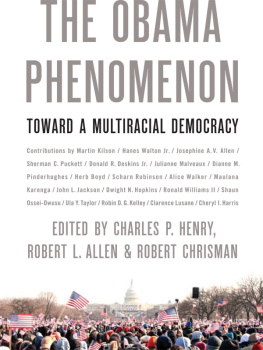
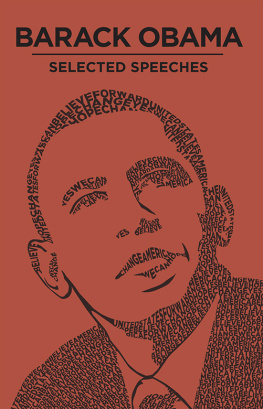
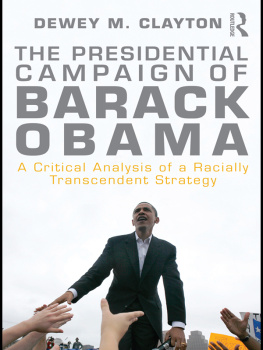
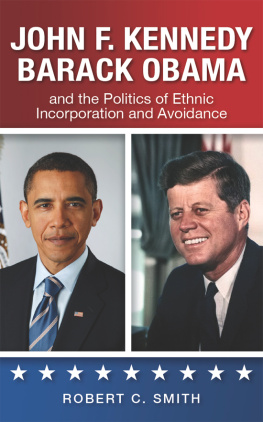

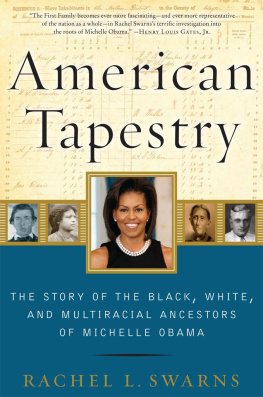
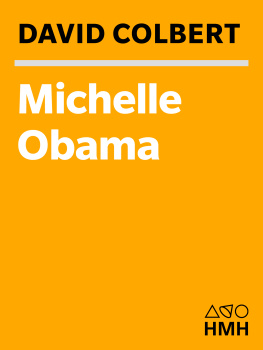

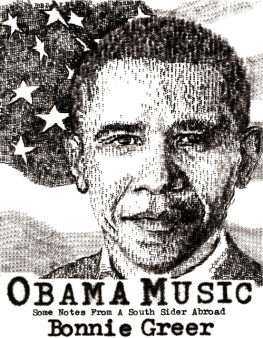


 This book is printed on acid-free paper.
This book is printed on acid-free paper.